Rainie Oet is a trans woman who writes fiction and poetry for adults and young readers. She is the author of the picture books Robin’s Worlds and Monster Seek (Astra). She received her MFA at Syracuse University, where she was awarded the Shirley Jackson Prize in Fiction. She currently lives in Los Angeles with her cat, Skipper. Glitch Girl! is her debut novel.
I had the opportunity to interview Rainie, which you can read below.
First of all, welcome to Geeks OUT! Could you tell us a little about yourself?
Thank you so much! I’m Rainie Oet. I write fiction and poetry for adults and young readers. I’m a normal girl and I write normal books. Like my new book, Glitch Girl!
I dream about a world where wild tapestral interrelation, rather than assimilation into palatability, is the dominant flavor. A world in which normal means personal. Where no kid or adult has to fear for their life, work to be loved, or mask to be seen.
What can you tell us about your most recent project, Glitch Girl!? What was the inspiration for the story?
Yes, so Glitch Girl! is semi-autobiographical, a novel in verse about a young nonbinary trans girl named J—(crossed-out because she knows her name doesn’t fit her anymore) through the ages of 10 to 13. J— is obsessed with Coaster Boss, a very hard computer game about managing a roller coaster park. She imports custom park guests modeled after herself, her crush, her parents—and uses the game to live out her daydreams, explore her fears, and think about her life. To J—, Coaster Boss functions as a kind of ongoing lucid dream, as compelling as it is dissociative, in which she both lives out a bulk of her inner life, and also thinks through the big things in her non-game life—her quiet, overwhelming feelings of not being a boy; her powerful and delusional crush on Junie; her relationship to her ADHD and all the other mysteries of her world.
J— believes that she is bad. But she has so much fun, anyway. She can’t stop believing in everything good. She loves being alive, even as her world opens and closes its shadows around her.
The book tracks a similar journey to the one new trans people start every day (and one that I hope I never stop): going from how we think things are supposed to be (not knowing why everything feels so quietly wrong) to how things really are. The central subject of Glitch Girl!, and of all my work, is trans reality—which is the most universal reality there is. By which I mean, so much of the “normal” world isn’t real, more than symbols are real. Trans people are my favorite people because we shine in symbol and live in substance, unifying the two. Our desire for reality, together with our holding/shaping of reality, is what makes us real.
I publish this book to save and change lives. Kids’ lives. Adults’ lives. And not just the trans ones.
Are you real? Are you connected to what’s real? Are you doing what you want to do with your life? Are you alive? Is your world alive? Do you feel disconnected from people around you? Do you feel disconnected from yourself? Do you skim over these questions because they are difficult? What is the center of your world? Do you wish for a better world? Do you care that your time is running out and that this is your life? Do you know that you can change something, but only you can figure out what that is?
As a writer, what drew you to the art of storytelling, especially middle grade fiction and novels in verse?
I want to remind myself and everyone about the beauty and mystery and power in things. I want to write stories like all the stories that changed and shaped me. I want to say things like no one has ever said them before. I want to speak directly to kids, trans and nonbinary kids and neurodivergent kids, all the kids who feel so much bigger on the inside than they’re ever given permission to be. I want to tell these kids: “Now, especially now, the real world loves you. I and other people are fighting for you, and we will fight for you forever.” I want to give trans kids permission to be trans, to be messy, to not have anything really figured out, by showing them the messiest example I can think of: me at their age.
I write for adults too, and would consider myself a writer more than a kids-lit or adult-lit writer. My primary audience for Glitch Girl! is kids, but this is a book for everyone. I take my audience seriously and I don’t talk down to them, no matter who they are. If you’re an adult reading this, do you remember (past the rosy tint of nostalgia) how complicated it was being a kid, how overwhelming, how joyful, how interesting? I think kids often have deeper interior experiences than adults do, because they’re experiencing everything for the first time, and figuring out what it all means.
A novel in verse is an extended story told in poems, each of which is often an entire scene. Here, the format echoes J—’s experience of ADHD. And also, readers build the story out the empty spaces between lines, between poems. This format allows for a story that both quickly covers years and also traces, in microsopic detail, the rollercoaster rides of days and weeks.
How would you describe your writing process?
I sit down and think about what I want to say. I let it open and enfold me and kind of pilot it like a mech. But the mech, the thing I want to say, has its own life, its own wants. The writing process is us walking over dream Earths, dropping a trail of glistening golden dust in our wake. Sometimes there’s a minotaur chasing the mech, and sometimes we reach a dead end and need to go back. We makes mazes out of all of this, and follow those mazes into their minotaurs and into their exits. What’s left behind is a story, for you. I’m a dream maker. I make psychic change machines. I write rides.
For my longer works, I write every day if I can. I think about my current project(s) all the time, even when I’m doing other things. I pay attention to my life, I live weirdly, and then I connect the dots. It turns out if you do this regularly for long enough, you’ll have a novel. Then you look at what you have and make it whole, by iterating.
I think everyone should/can make art.
What are some of your favorite elements of writing? What do you consider some of the most frustrating/challenging?
I love and am challenged by how unpredictable writing is. Because we’re all going to die eventually, the best things are both loveable and challenging.
Unpredictability—because who on Earth knows what they or anyone are going to dream about in advance?
The task of communication is also something I love and am challenged by. The more deeply real the thing you want to communicate, the harder it often feels to do so. Even with my (all of our) lifetime of speaking, I’m far from having mastered communication. Because it requires seeing the mundane sublime in myself, in the world, and in you, and showing the ways in which they’re all different and the same.
Aside from your work, what are some things you would want others to know about you?
I resist assimilation. I love people, deeply. I’m as normal as anyone. As normal as you.
And I’m Jewish. I don’t practice in any way but my own. Seeing and bringing together pieces of the divine is very important to me.
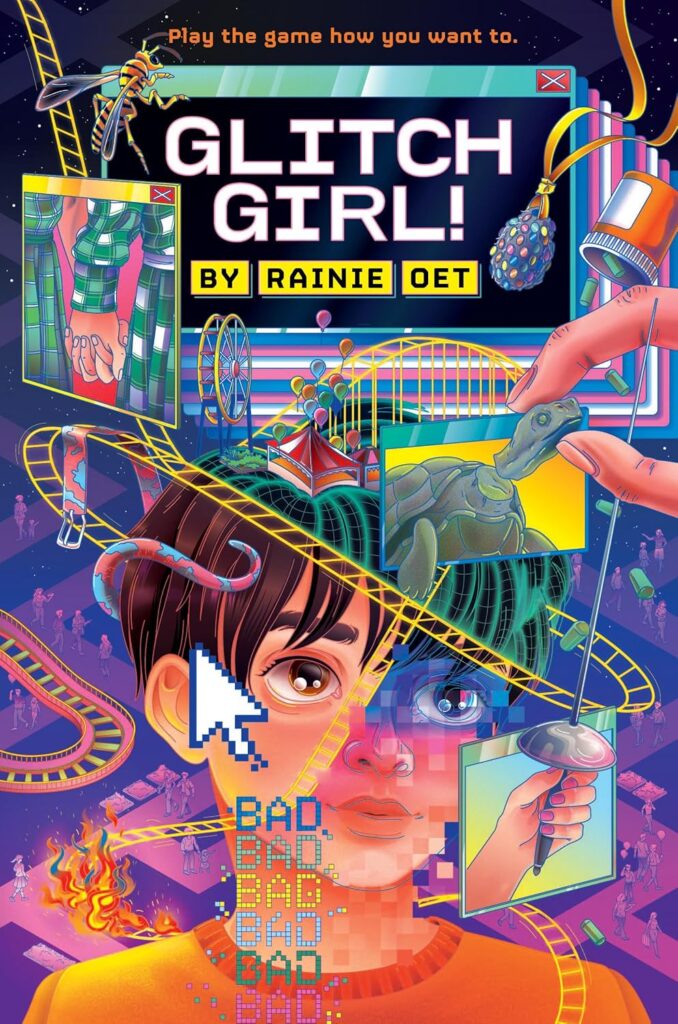
What’s a question you haven’t been asked yet but that you wish you were asked (as well as the answer to that question)?
I wish I was asked more about what non-book media I love!
Jane Schoenbrun’s film I Saw the TV Glow. I struggle to think of a more profound portrait of reality under reality. Trans people get something about the world that no one else does.
AI: Artificial Intelligence remains one of the most pretty, mysterious, and compelling movies about childhood, the longing for love, and the quest to be “real.”
My favorite kind of plot is on display in Madoka Magica: Rebellion, as well as the above two
movies. Magical girls having feelings about dreams ending.
Also, I just want to remind everyone that The Little Vampire is a profoundly underrated movie.
Nu, Pogodi! is an excessively rewatchable Soviet kids cartoon that shaped me in ways I don’t understand.
Star Wars Episode I: the Gungan Frontier is an incredibly open-ended xeno-ecosystem sandbox game that allowed me to play with my agency creatively.
The game I keep coming back to in my mind is Sonic Battle. It’s a Game Boy Advance game about a mirror-pronouns robot girl who gets trained to battle (and speak and feel and care and think) by being passed through the stewardship of every main Sonic character before becoming corrupted, as we all must one day.
What advice might you have to give for aspiring writers?
Ten. Pay attention to everything, even zoning out. It’s all interesting and nothing you can find beautiful is wrong.
Nine. Sit down and write every day, or as often as you can. Writing for a fixed amount of time, a fixed amount of words, or a fixed amount of poems can help more than you might think. Make rituals out of your writing. You have infinitely more inside you than you think you do. If writing is hard, you’ll suffer whether or not you get something onto the page, so might as well write.
Eight. Want it. Want it more than anything. Invent reasons why, if you have to. Make “desire paths” by walking them, and then it’s easy to rewalk them.
Seven. Get excited, whatever way you can, about your non-writing life.
Six. There are more ways to be a writer beyond traditional success. You don’t need an agent. You don’t need to publish poems or stories in magazines. You don’t need to be in bookstores, even, to be influential. These things can be great, but so can self-publishing on the internet. The right readers will find you if you seek them out.
Five. Encourage your friends to make art. Get them to encourage you.
Four. Let all parts of your mind be real.
Three. Spend time thinking every day.
Two. Move more slowly than you think you have to.
One. Move more quickly than your fears want to let you.
Zero. Go.
Are there any other projects you are working on and at liberty to speak about?
I have a finished unpublished poetry collection called Fast Fire. It follows a process of elegy for a dead twin sister, who is revealed to be imaginary, then actually and unexpectedly real after all. It’s about being trans, being not-lonely, skimming/almost-touching a few of the angels that live beneath grief, and being real.
Fast Fire may be my best poetry collection. It’s also the most explicitly trans. Publishers have politely declined. I want it in your hands. I will self-publish it if I have to!
Finally, what books/authors would you recommend to the readers of Geeks OUT?
Some of my favorites:
- Everything by Octavia E. Butler, especially the Patternist series and Xenogenesis. I need to reread Parable because I think about the Earthseed poems every day.
- Psycho Nymph Exile by Porpentine. Romantic trauma life where everyone’s a trans girl, as the world does/doesn’t end. It should be noted that both Porpentine’s work, and Octavia Butler’s work, are not for kids! They are graphically about life under violence.
- The Wizard’s Dilemma (Young Wizards #5) by Diane Duane. Grief, pocket universes, messy interiorities colliding in friendship. This book is so mysterious and beautiful.
- Nona the Ninth by Tamsyn Muir. I love this entire series, but this book, like a beautiful temporary little rainbow bubble with an infinite compacted entity inside it, moves me in a special way.
- Nausicaä of the Valley of the Wind, the manga and the movie, is what finally transed me. It holds a special place in my bookshelf.

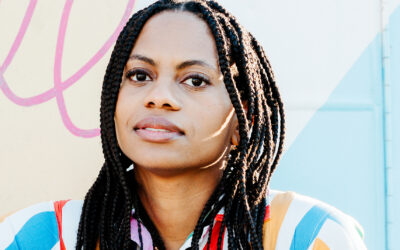
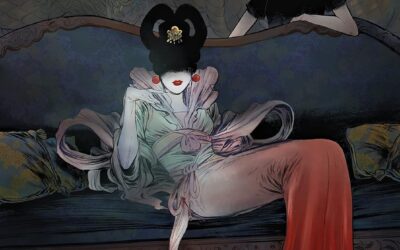
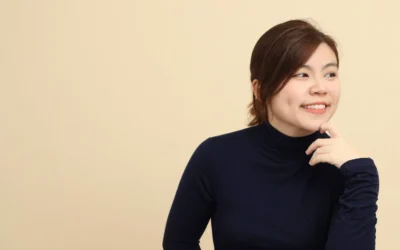
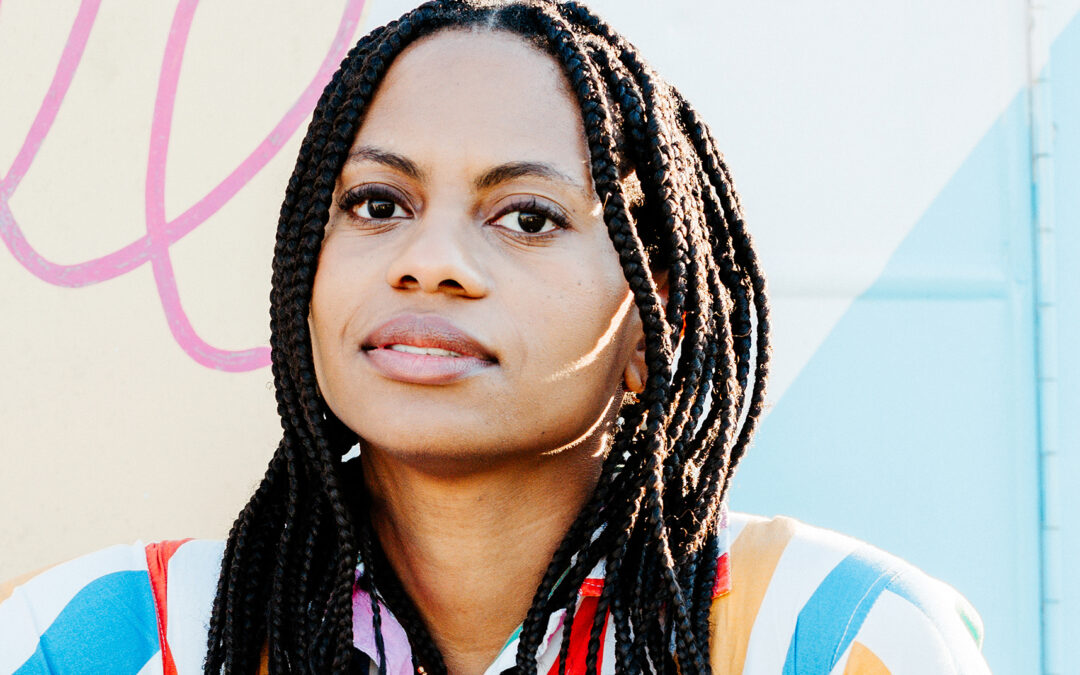
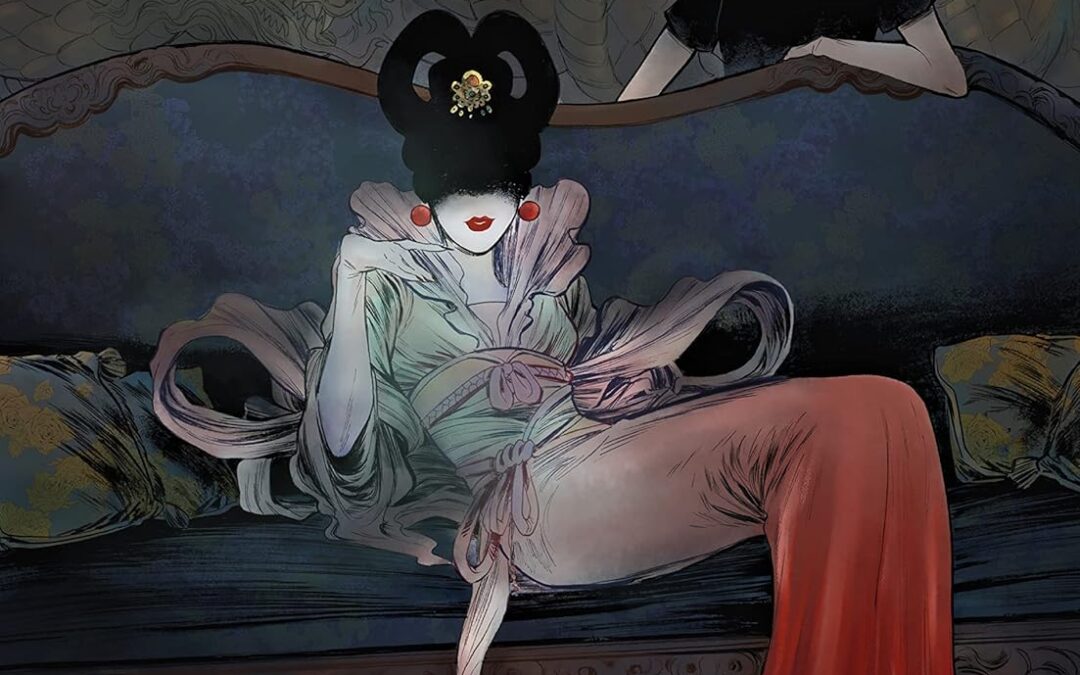
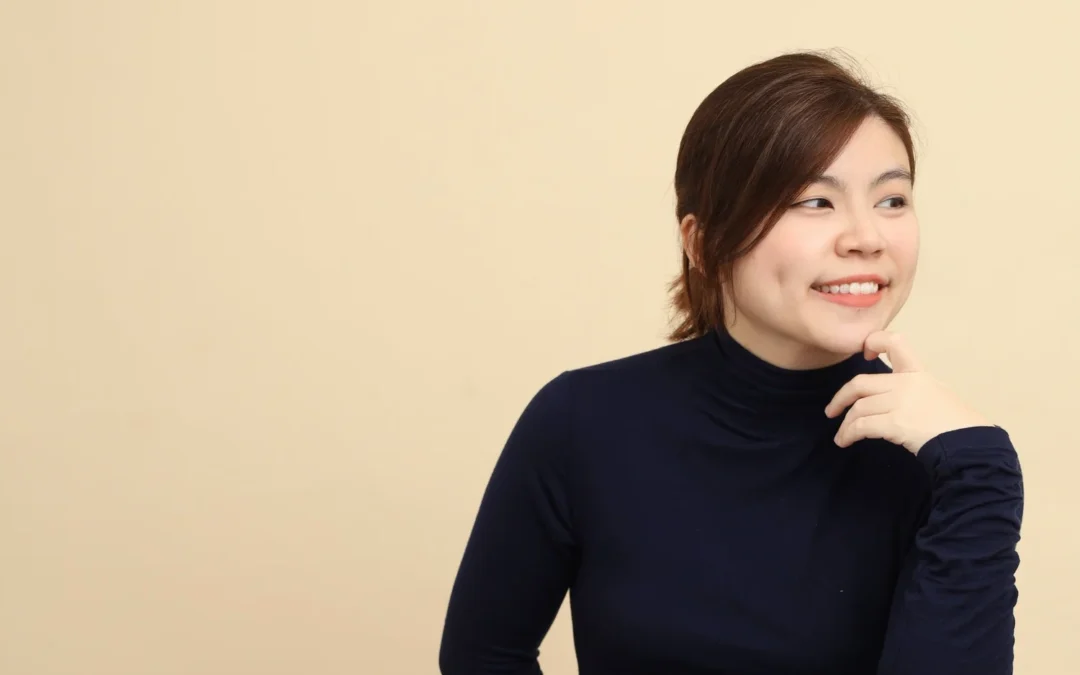
0 Comments